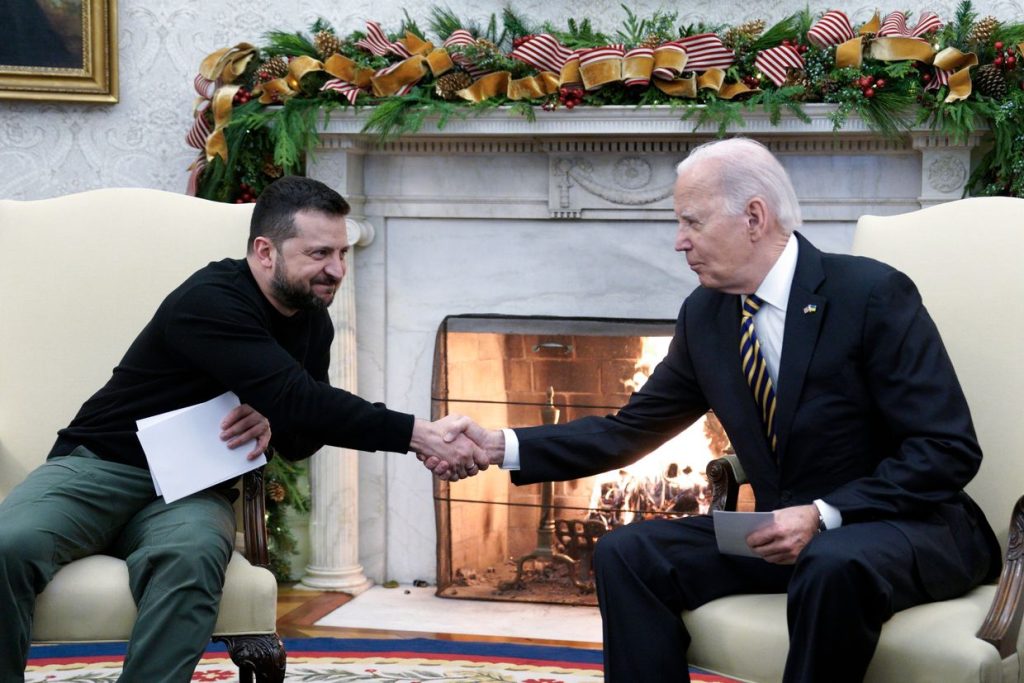reported that Johnson had initially been hesitant to bring the aid package to a vote, despite bipartisan support for it. Johnson’s hesitancy was attributed to concerns over the potential impact on U.S.-Russia relations and fears that the aid package could provoke further aggression from Moscow. However, pressure from both Republicans and Democrats, as well as ongoing Russian attacks in Ukraine, eventually led to the aid package being brought to a vote.
The aid package includes provisions for long-range missile systems and other military assistance to help Ukraine defend itself against Russian aggression. This assistance is seen as crucial in light of ongoing Russian strikes against civilians and infrastructure in Ukraine, including the recent attack on the Kharkiv TV tower. President Zelensky expressed gratitude for the unwavering support of the U.S. and emphasized the importance of the aid package in strengthening Ukraine’s defense capabilities. Senator Mark Warner also indicated that shipments of long-range missile systems could be ready for delivery within days, pending White House approval.
President Zelensky’s call with President Biden on April 22 further emphasized the significance of the aid package for Ukraine. Biden assured Zelensky that he would sign the bill immediately once it is approved by the Senate, indicating strong support for Ukraine from the U.S. government. Zelensky and Biden also discussed the need for quick approval of the aid package and the importance of strengthening Ukraine’s air defense and artillery capabilities. The decision by the House to allow the confiscation of frozen Russian assets was also highlighted as a significant signal to U.S. partners.
The delay in bringing the aid package to a vote was met with criticism and impatience, as Ukraine continued to face Russian aggression and attacks on its sovereignty. The decision to finally allow a vote on the aid package was seen as a positive step towards providing Ukraine with the necessary support to defend itself against Russian aggression. The ongoing conflict in Ukraine, fueled by Russian military intervention, has resulted in significant humanitarian and security challenges for the country, making the need for international support all the more urgent.
The aid package for Ukraine reflects a broader commitment by the U.S. to support its allies and uphold international norms and principles. The U.S. government’s response to the crisis in Ukraine, including the provision of military assistance, sends a clear message to Russia and other potential aggressors that the U.S. stands firmly with its allies in the face of threats to peace and security. The strong partnership between the U.S. and Ukraine, as demonstrated by President Zelensky and President Biden’s call, highlights the importance of international solidarity in addressing shared security challenges and promoting peace and stability in the region.
Overall, the approval of the aid package for Ukraine represents a significant milestone in U.S. support for its allies and in efforts to address the ongoing conflict in Ukraine. The decision to provide military assistance to Ukraine underscores the U.S. government’s commitment to upholding international law and defending the sovereignty and territorial integrity of Ukraine. The call between President Zelensky and President Biden further underscores the close partnership between the two countries and the shared commitment to promoting peace, security, and democracy in the face of ongoing threats and challenges.


